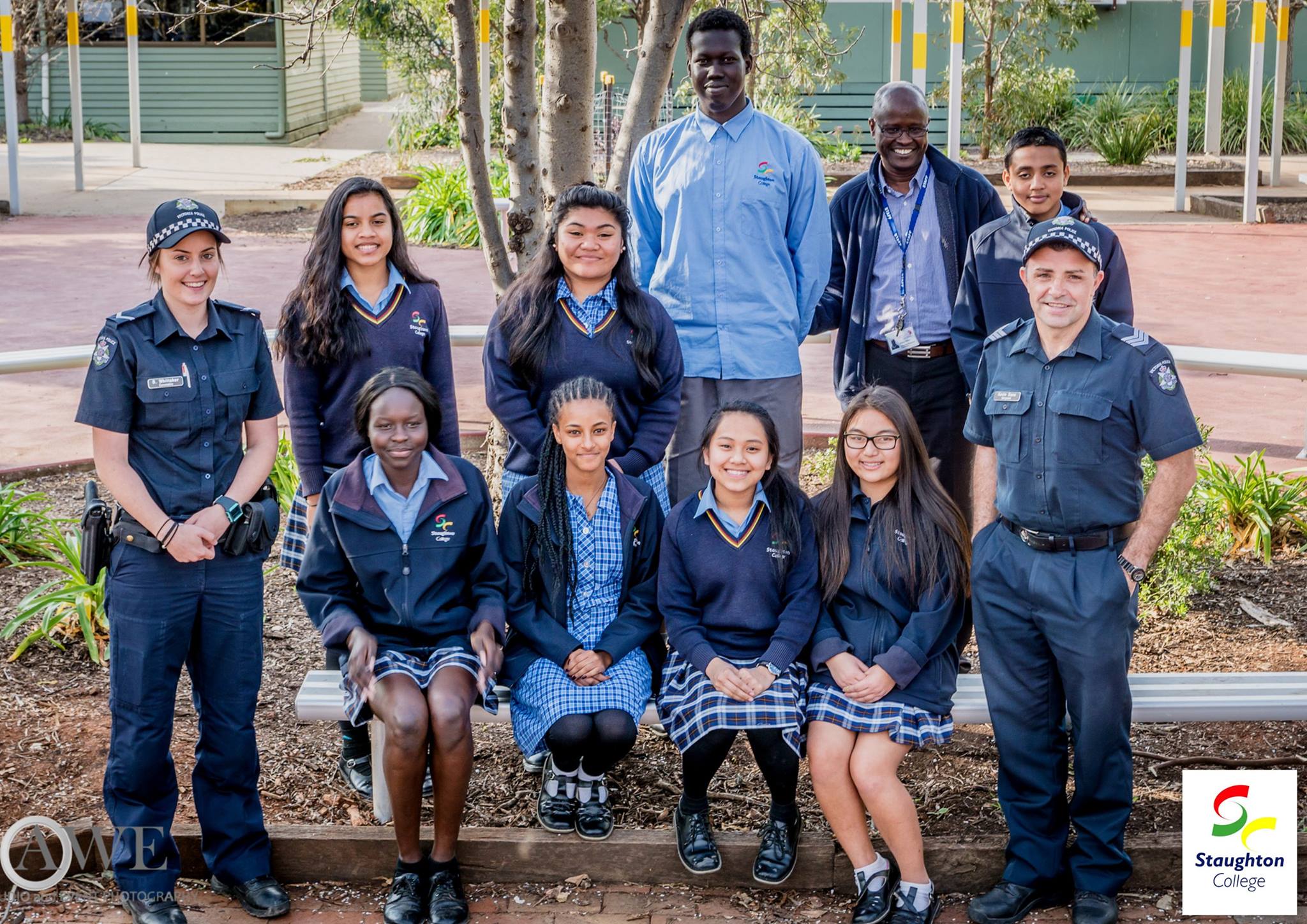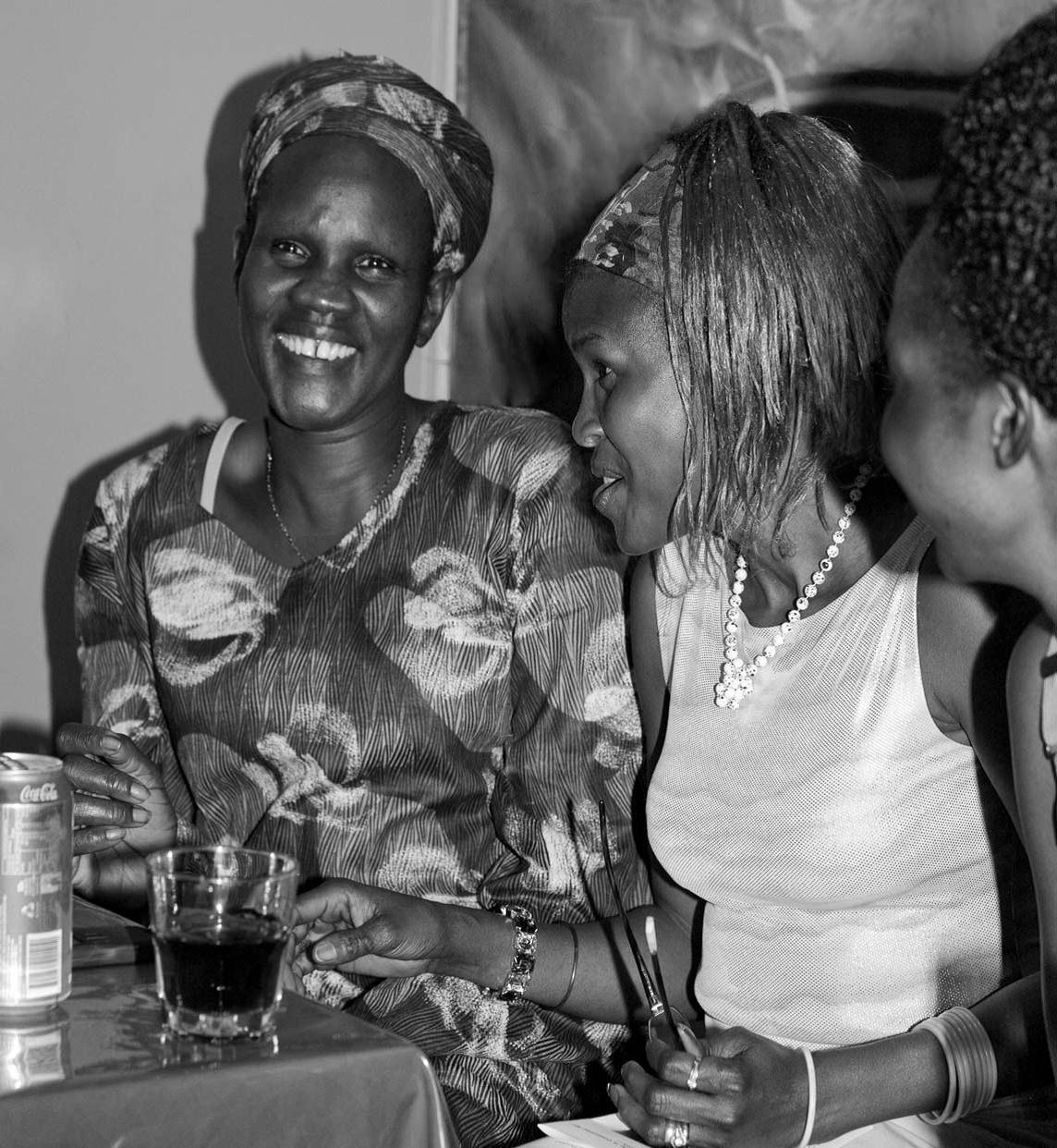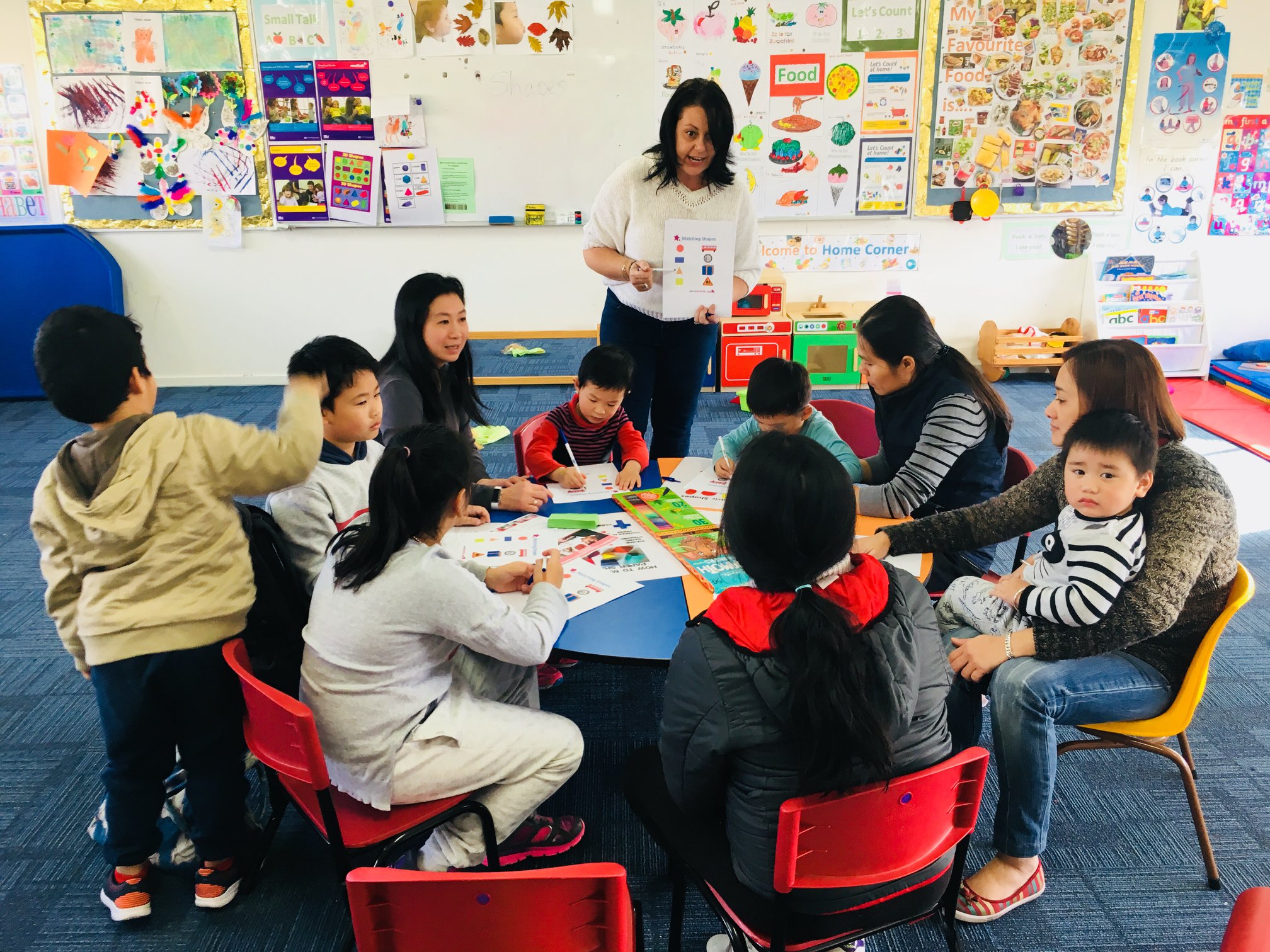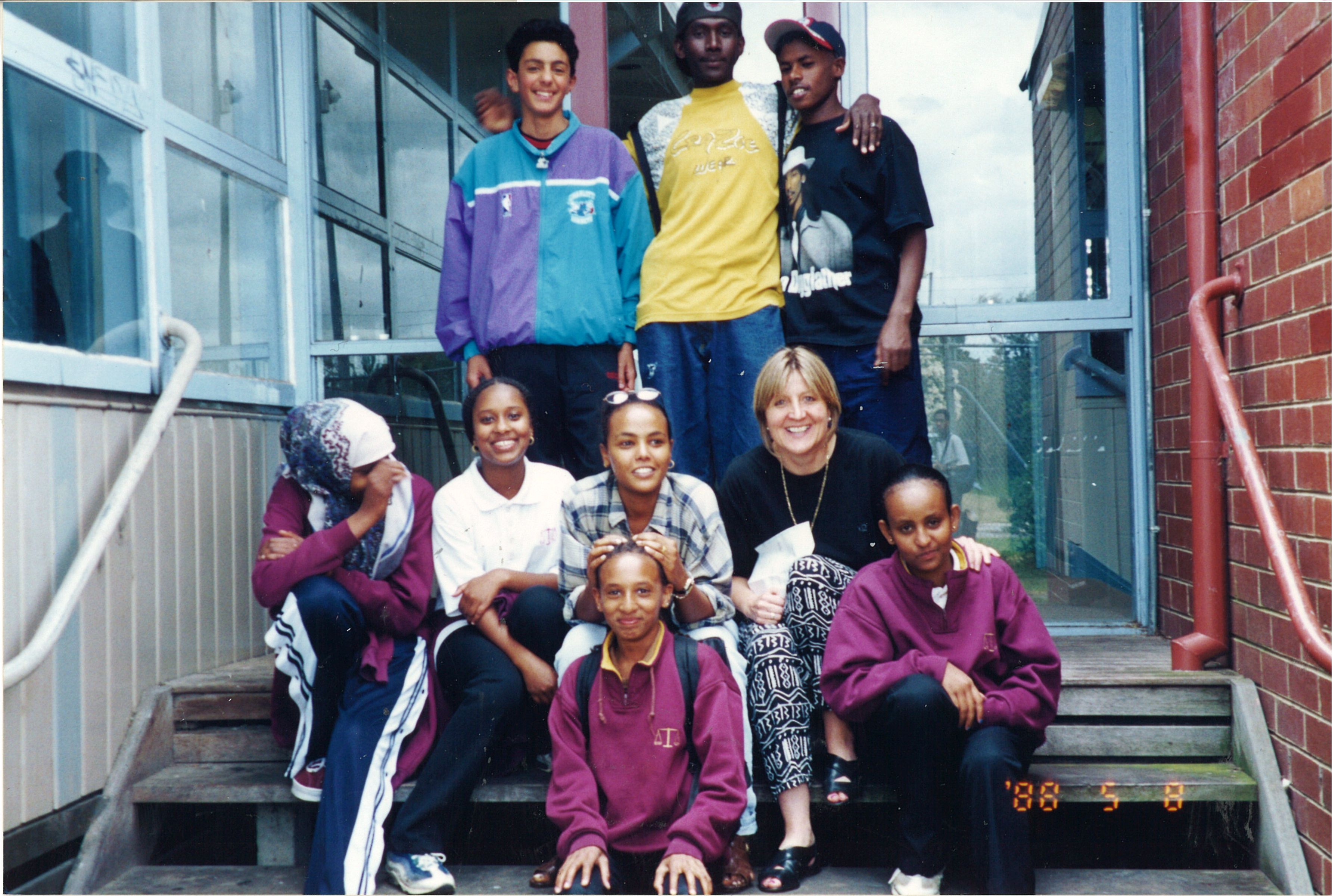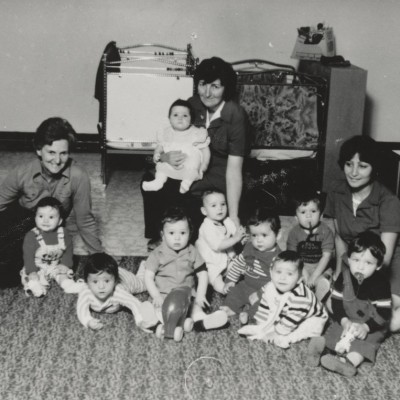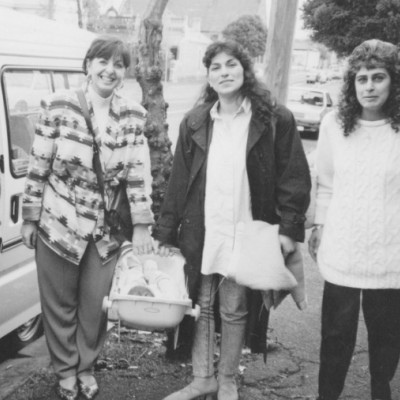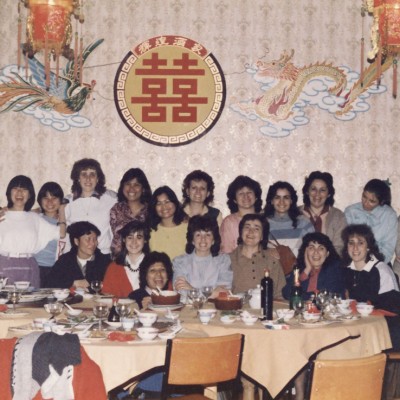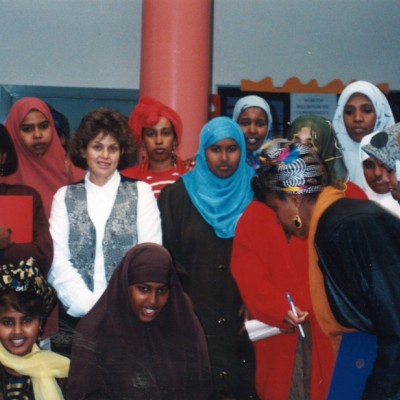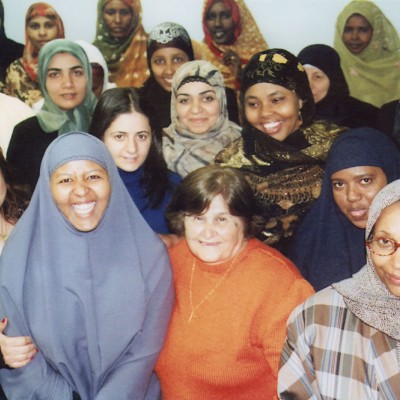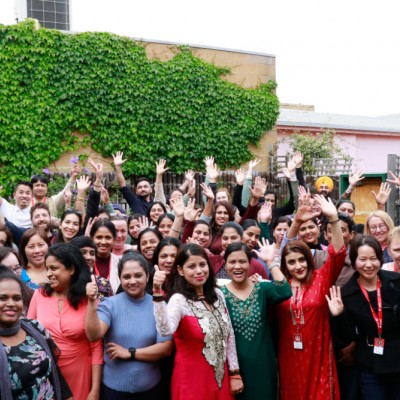Community programs
Over the last two decades, VICSEG New Futures has broadened services provided to ethnic communities and partnerships with the family, youth and children’s services sectors. It has provided migrant and refugee women with a safe and supportive environment to assist the early development of their children through playgroups. Its understanding of the value of keeping children and young people connected with community and culture has led to youth programs focusing on inter-generational relationships. And perhaps most significantly, the extraordinary success of the New Futures Training model has brought life-changing vocational training to thousands of students from migrant and refugee backgrounds.
Playgroups began as one of the earliest entries into community programming and VICSEG New Futures is a leading advocate of playgroups as a means for social integration of young refugee and migrant families. From as early as 1982, VICSEG worked to set up culturally appropriate playgroups, not only to provide the children of migrant and refugee parents a place to learn and grow, but primarily to support the needs of the primary carers (usually mothers), connecting them to related support services and offering additional opportunities such as English classes. The organisation also quickly recognised the benefits of training and empowering community members to become playgroup leaders, opening up a whole new avenue of connection with communities.
Being a Playgroup Facilitator is a very rewarding experience ... Most rewarding is being able to help other mothers see firsthand the importance of play-time in developing their children emotionally, socially and intellectually. I can do all that and enjoy the company of my own children at the same time ... Isn’t that great!
Playgroup leader trainee, 2005
By the late 1990s, VICSEG’s involvement in community programs was expanding beyond playgroups and childcare, as demand for the unique kind of support the organisation could offer grew. VICSEG developed youth programs targeted at growing communities of new arrivals from the Horn of Africa in Melbourne’s western and northern regions. These included initiatives such as the Inclusive Schools Program, which aims to support at-risk young people to stay engaged while at high school, as well as School-Based Apprenticeships and Traineeships (SBATs), which allow high school students to combine school with practical work-training and employment.
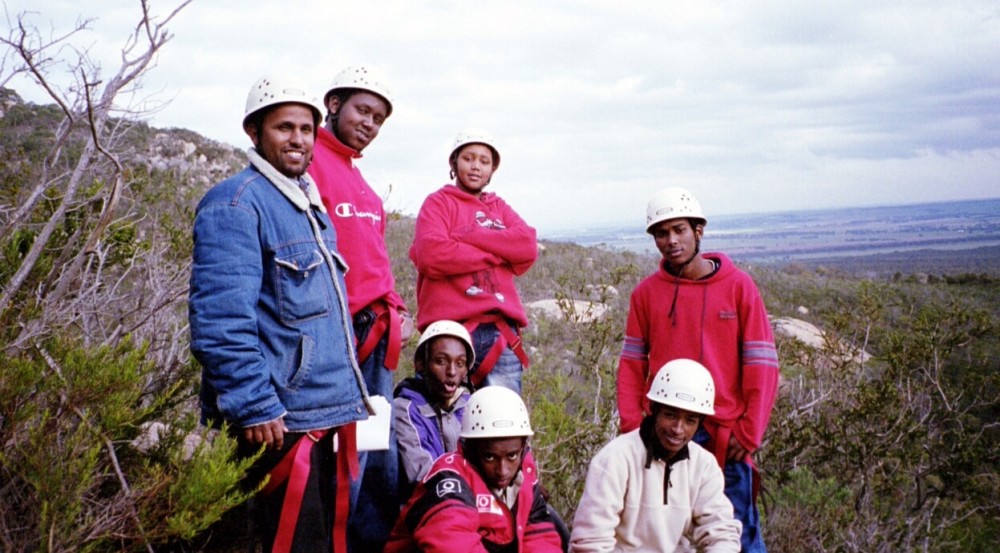
The Active Young Africans program in action with Yousif Mohamed, long time project worker, and participants at a ‘High Challenge’ camp.
Another dimension was added to VICSEG’s portfolio of work with the addition of youth justice programs that work around promoting better relationships and understanding between young people from migrant and refugee communities and the Victorian Police. Once again, VICSEG was a pioneer in this area encouraging and providing initiatives for refugee communities to engage proactively with their young people at risk.
The organisation also provided support where required to schools and local councils to help support community groups and foster greater understanding and awareness of the needs of newly arrived migrant and refugee families.
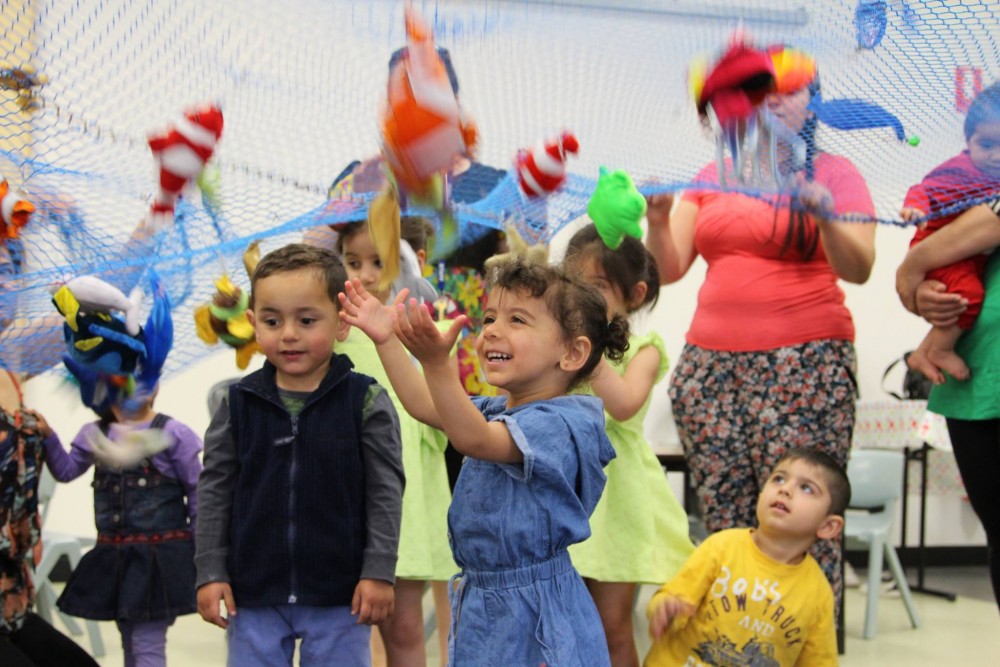
Assyrian Chaldean playgroup at Meadow Heights Primary School, 2014.
Kevin Pope was principal of Meadow Heights Primary School in the early 2000s when he first came in contact with John Zika and VICSEG. The relationship that developed between VICSEG and Meadow Heights Primary School saw the school community grow and flourish with the support of playgroups, cultural competency training and the empowerment of teachers and parents to better understand each other and the needs of their school families. Over the next 12 years, Meadow Heights Primary School ended up employing around 15 local parents to work as education support staff in the school. ‘We used some of the documentation that VICSEG had about preparing for school … and over time we used VICSEG to increase our cultural understanding’, reflected Kevin.
I think one of the things is that there was nothing artificial about it because the people that worked for VICSEG had a passion. They really had a passion to deliver for people. They didn’t need to walk a mile in someone’s shoes. They were in the shoes of the people they were helping and that in itself was a powerful and easy thing to embrace.
Kevin Pope, former principal, Meadow Heights Primary School
In 2012, John Zika approached founding Chairperson Janet Elefsiniotis – who, after she left VICSEG, went on to further her career in the community sector – to return as Manager of Community Programs for Families and Children. In this newly created role, Janet was tasked with expanding the community programs side of VICSEG New Futures to provide even greater support for newly arrived families.
When Janet Elefsiniotis arrived in 2012, she was excited to re-join the organisation she’d known so well:
I was absolutely delighted to be given this role … because I knew how the operation operated and I had a lot of respect for the organisation. It was a great opportunity for me as well.
Janet’s role also involved establishing strategic partnerships with relevant organisations and promoting the organisation as a key and strategic player in the child/family welfare and migrant and refugee space that should be consulted in the development of policy and procedure. VICSEG became a respondent in the 2012 Victorian Government Vulnerable Children’s Enquiry, which resulted in the creation of a CALD (Culturally and Linguistic Diverse Communities) Senior Programs Advisory Committee on which VICSEG was an active player.
From the mid-2000s, the political winds shifted and the playgroup and early childhood programs operated by VICSEG no longer qualified for federal funding. This change in policy reversed the emphasis on combined services for families and children and withdrew support for the key role that VICSEG had played, since its foundation, of engaging with families and communities concerning the needs of their children. It was a very difficult and uncertain time, with six bicultural resource staff losing their jobs at the end of 2005.
The organisation needed to find funding from another source and so began to look to philanthropic organisations for support. Around 2007 the Myer Foundation approached VICSEG and invited them to submit a proposal for funding. From this proposal, the Refugee Family Resource and Mentoring Program was launched in 2008. Funded by the Myer Foundation, this program saw trained mentors working directly with refugee families, resourcing them with access to both general and specialised children’s services. After a positive review at the end of the first year, funding was extended for a total of three years with the added capacity for ongoing research and evaluation. This funding allowed VICSEG to pick up the work that had been interrupted by the cut to government funding and it also provided the organisation with a strong, evidence-based, evaluated program that it was able to use to successfully become part of the Federal Governments Communities for Children initiative. After the Myer Foundation funding ended, Family Mentoring programs continued to be funded through the Communities for Children initiative.
As well as the Myer Foundation, funding partnerships were formed with other large philanthropic agencies including the Macpherson-Smith Trust as well as Gandel Philanthropy and William Buckland Foundation. Another aspect of Janet’s role was securing funding, both from state and federal governments and also from financial partnerships with philanthropic trusts. ‘Over the eight years that I was in my role’, reflects Janet, ‘I was successful in engaging many, many more significant financial partnerships with small and large philanthropic organisations which allowed the agency to really, really expand and it was really an exponential expansion’.
New horizons
From 2011, under the umbrella of Skills for Victoria, VICSEG New Futures found itself suddenly with opportunities it could never have envisaged. Not only did the increase in student funding mean more training and options for students, but it also meant the organisation had the ability to inject more into community programs and development by cross-subsidising. The possibilities were endless.
VICSEG New Futures lost no time in building and improving training and community development programs. Maree Raftis recalls:
Suddenly, we saw the possibility of establishing proper campuses. And with those campuses came childcare centres, which meant that the students had somewhere very accessible not only to leave their own children but to also learn childcare for example, on the job. A very hands-on experience.
In 2013 a new training space opened in Werribee, quickly followed by larger campus facilities in Braybrook, Epping and Craigieburn. The larger campuses in Braybrook and Epping offered new training facilities with onsite practical training as well as providing affordable onsite childcare centres. In 2016 VICSEG New Futures became part of the Jobs Victoria Employment Network (JVEN), partnering with 25 employers in the care sector. Within three years, it was able to support over 400 people into employment.
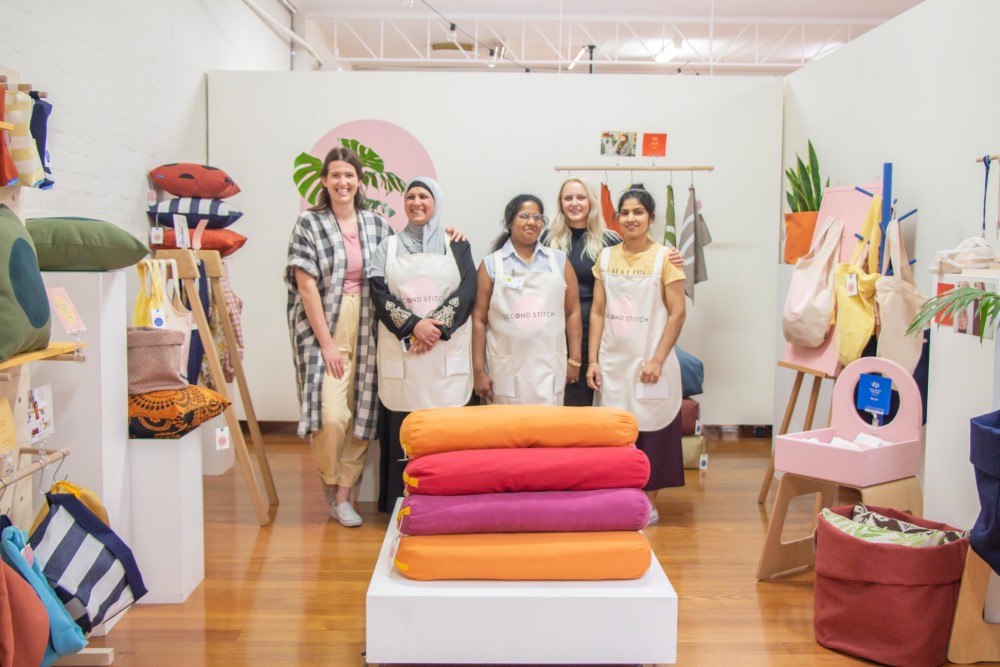
Second Stitch, 2019.
New Futures Creative opened in 2015, an upstairs space on Sydney Road that began as an area in which early childhood students could learn new skills and gain confidence around creative development and activities with children in their care.
A lot of the families and individuals that we work with through either our training or our programs come from these really deep, rich cultural backgrounds of craft, but through their journey and through their circumstances of migration and settlement had really little avenues or really little opportunities to express themselves..
Caspar Zika, General Manager, New Futures Training
The space took off with cultural dance classes, food workshops, creative workshops, a choir and sewing workshops. Caspar Zika was instrumental in setting up the Creative Hub and recalls, ‘As soon as we got sewing machines, it was almost like a different beast because all of a sudden we had people with existing experience coming in, showing different things they’d learnt, putting zips in things and skill sharing and running projects’. Within a few short months, the Creative Hub morphed into a new social enterprise called Second Stitch. As well as an alteration service and making and selling a small number of items, by 2018 Second Stitch was also the training ground for Certificate III in Clothing and Textile Production. ‘We opened up enrolment thinking we’d get ten people’ recalls Caspar, ‘and within three weeks we had 60 people demanding to be trained, so we launched three classes all at once’.
By the end of 2019, VICSEG New Futures was celebrating another outstanding year of achievements. Further growth in training development included a specially curated Certificate IV in Youth Work tailored for trainee Imams and youth leaders from mosques in the northern suburbs – a first of its kind. State government funding was secured for the extension of playgroup programming into the south-east. A New Futures Employment Enterprise Hub was established in Coburg and the organisation won the Victorian Multicultural Commission Early Childhood Education Award for Excellence for its Learning Together program. For the third year running, New Futures Training received excellent student feedback and performance results, well above the Victorian average.
The organisation was going from strength to strength. However, along with organisations, communities and families around the world, VICSEG New Futures was about to face its biggest challenge yet.
Resources:
Interview with Caspar Zika, 13 September 2022.
Interview with Janet Elefsiniotis, 30 August 2022.
Interview with John Zika, 1 September 2022.
Interview with Kevin Pope, 17 August 2022.
Interview with Maree Raftis, 2 September 2022.
VICSEG Annual Report, 2001, 2016, 2018, 2019.
